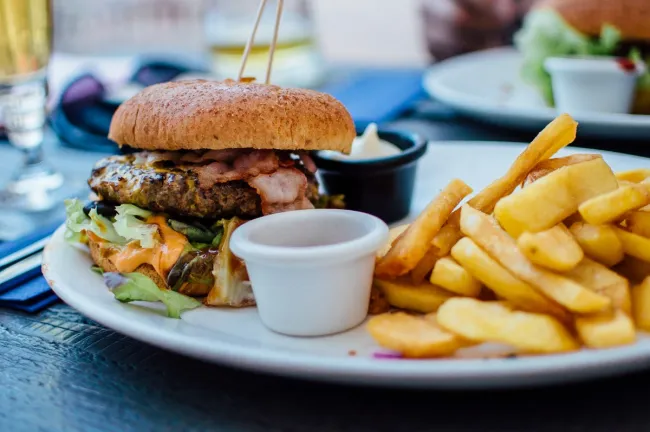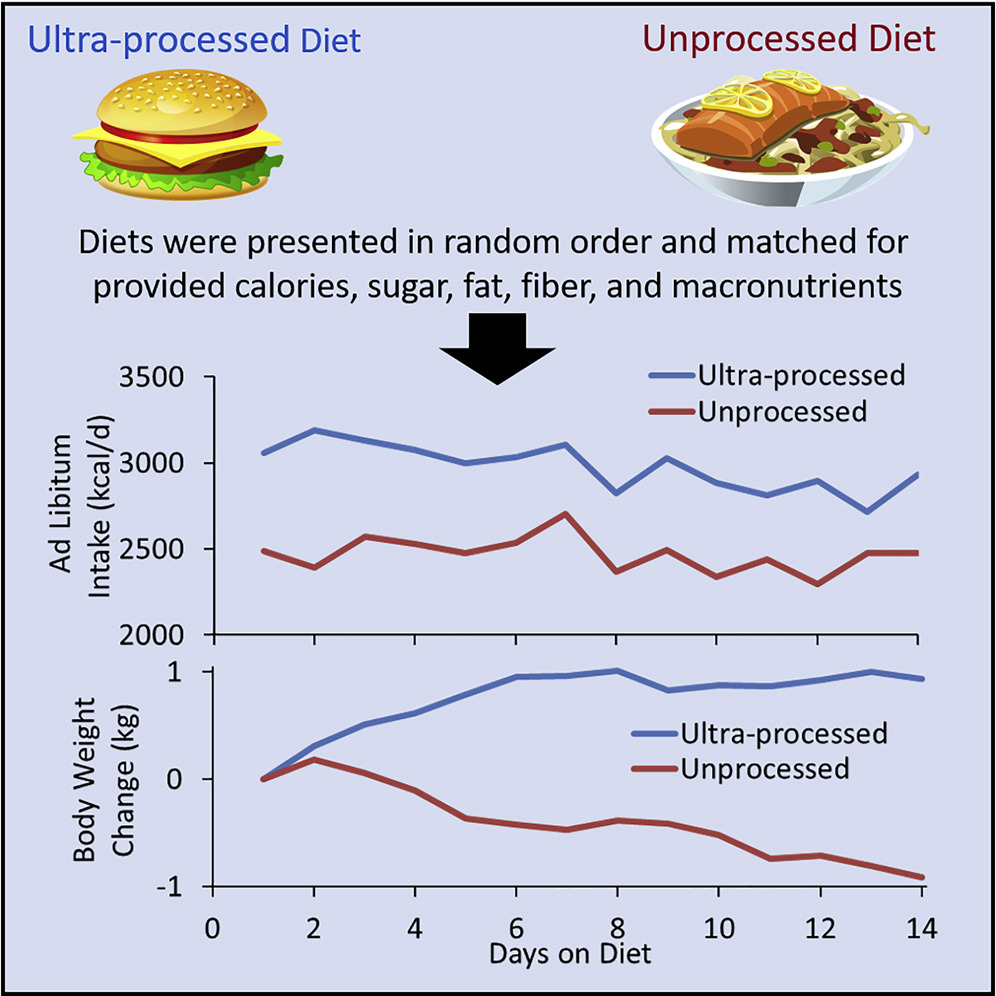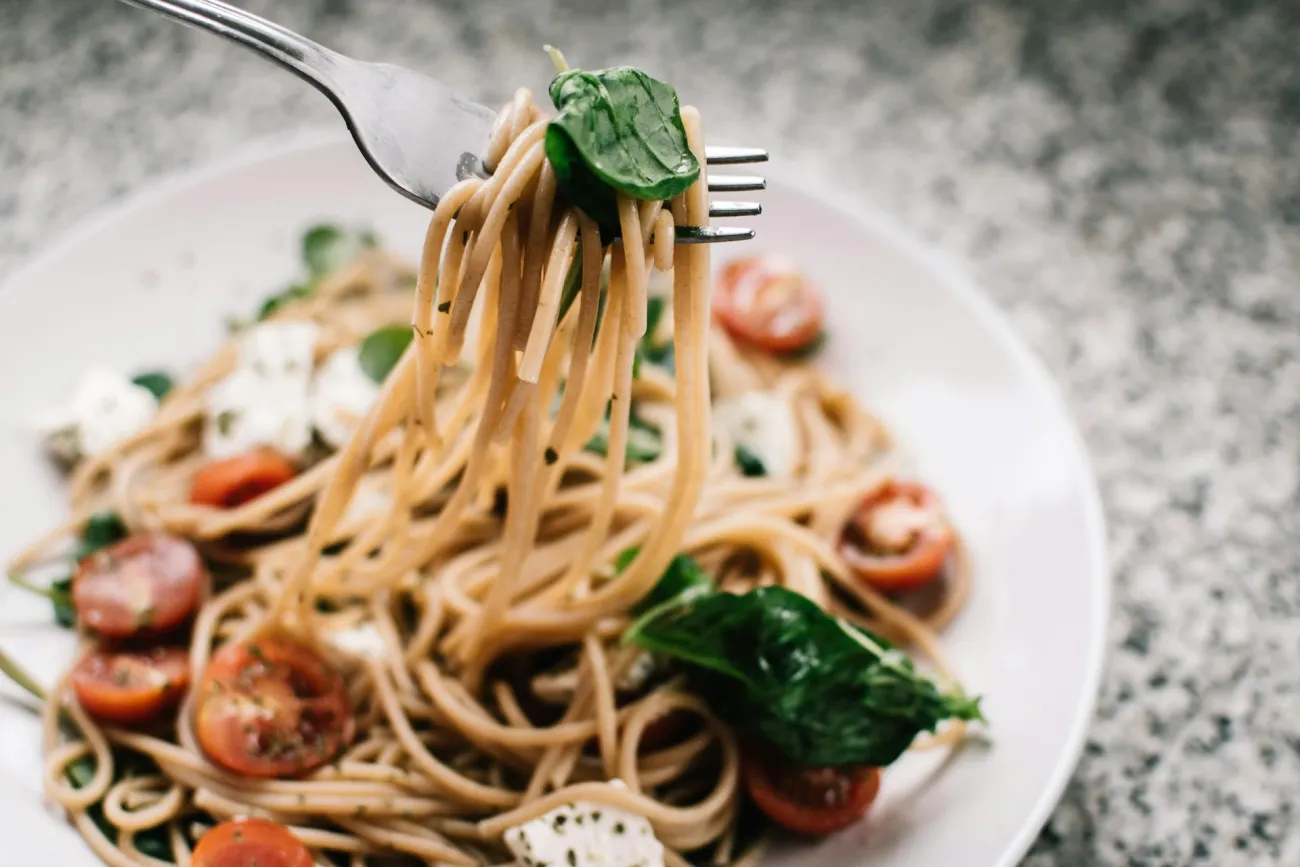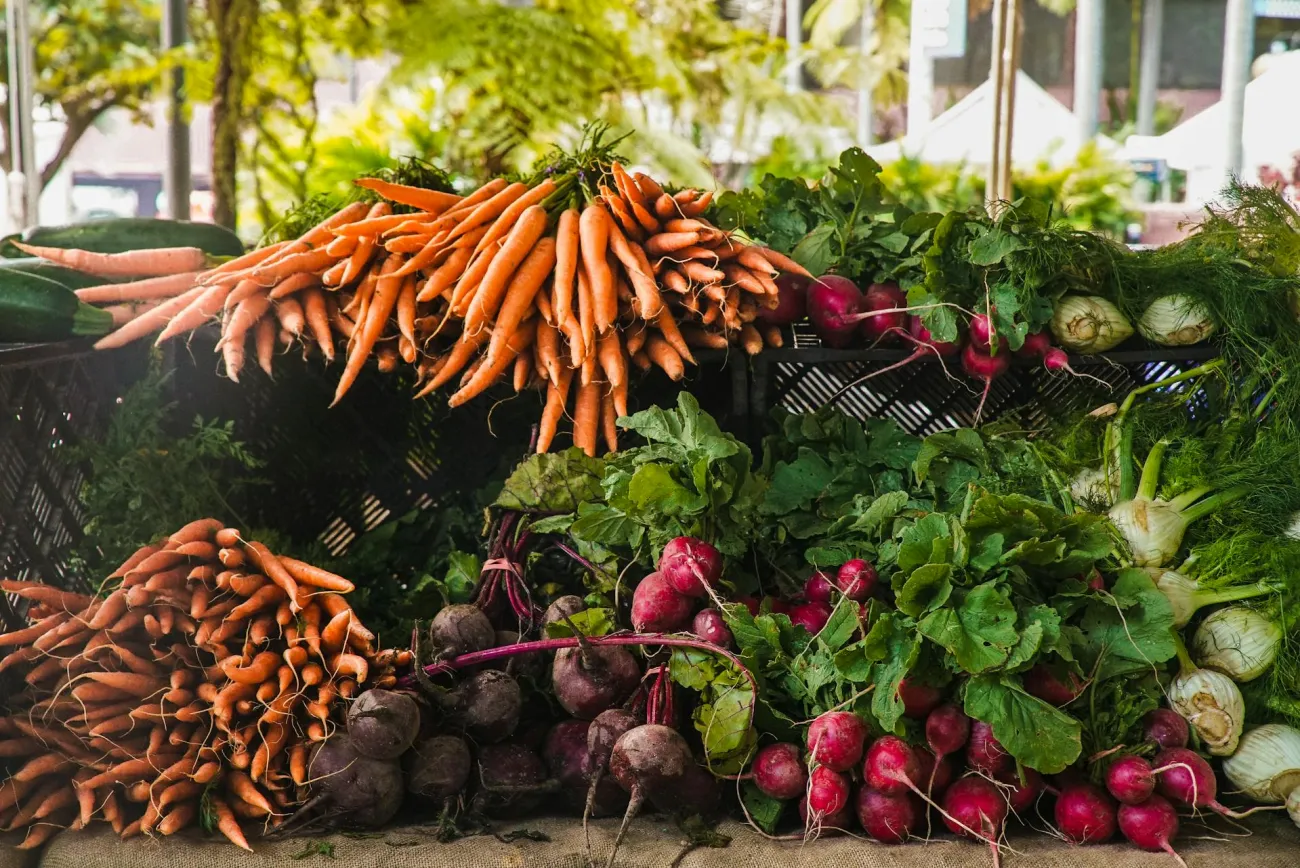According to this randomised controlled trial, people eat an average of 500 kcal more per day when offered ultra-processed food compared to unprocessed food (as defined by the NOVA system). Furthermore, the trial subjects gained weight on the ultra-processed diet and lost weight on the unprocessed diet.

20 people took part in the experiment (10 males and 10 females). They lived in the clinical centre for four weeks and were given two weeks of either an ultra-processed diet or an unprocessed diet, followed by two weeks of the other diet. The subjects were instructed to eat as little or as much food as they wanted.
The foods offered to participants on both diets were designed to have similar amounts of total calories, energy density, macronutrients, fibre, sugars, and sodium. However, the diets did differ in their amounts of added sugar (as opposed to total), insoluble fibre (versus total), saturated fat (versus total), and the ratio of omega-6 to omega-3 fatty acids. In the ultra-processed diet, 81% of energy came from ultra-processed foods and 5% from unprocessed foods. In the unprocessed diet, 88% of energy came from unprocessed foods, and none from ultra-processed foods. Three daily meals were available, plus snacks (available all day).
As shown in the figure below, subjects on the ultra-processed diet consumed more calories relative to the unprocessed diet, and gained weight, while subjects on the unprocessed diet lost weight.


Image: Hall et al., graphical abstract.
The paper notes that a limitation of the study is that is does not show how consumption of ultra-processed versus unprocessed foods might be influenced by cost or ease of preparation, since all meals in the study were prepared for the participants at no cost. As a result, the consumption patterns seen in this study might not be representative of real domestic consumption patterns.
Abstract
We investigated whether ultra-processed foods affect energy intake in 20 weight-stable adults, aged (mean ± SE) 31.2 ± 1.6 years and BMI = 27 ± 1.5 kg/m2. Subjects were admitted to the NIH Clinical Center and randomized to receive either ultra-processed or unprocessed diets for 2 weeks immediately followed by the alternate diet for 2 weeks. Meals were designed to be matched for presented calories, energy density, macronutrients, sugar, sodium, and fiber. Subjects were instructed to consume as much or as little as desired. Energy intake was greater during the ultra-processed diet (508 ± 106 kcal/day; p = 0.0001), with increased consumption of carbohydrate (280 ± 54 kcal/day; p < 0.0001) and fat (230 ± 53 kcal/day; p = 0.0004), but not protein (−2 ± 12 kcal/day; p = 0.85). Weight changes were highly correlated with energy intake (r = 0.8, p < 0.0001), with participants gaining 0.9 ± 0.3 kg (p = 0.009) during the ultra-processed diet and losing 0.9 ± 0.3 kg (p = 0.007) during the unprocessed diet. Limiting consumption of ultra-processed foods may be an effective strategy for obesity prevention and treatment.
Reference
Hall, K.D., Ayuketah, A., Brychta, R., Cai, H., Cassimatis, T., Chen, K.Y., Chung, S.T., Costa, E., Courville, A., Darcey, V. and Fletcher, L.A., 2019. Ultra-Processed Diets Cause Excess Calorie Intake and Weight Gain: An Inpatient Randomized Controlled Trial of Ad Libitum Food Intake. Cell metabolism. In Press, Corrected Proof.
Read the full paper here. See also the Foodsource building block What is malnutrition? and the page Responses to study on ultra-processed foods and weight gain.




Comments (0)